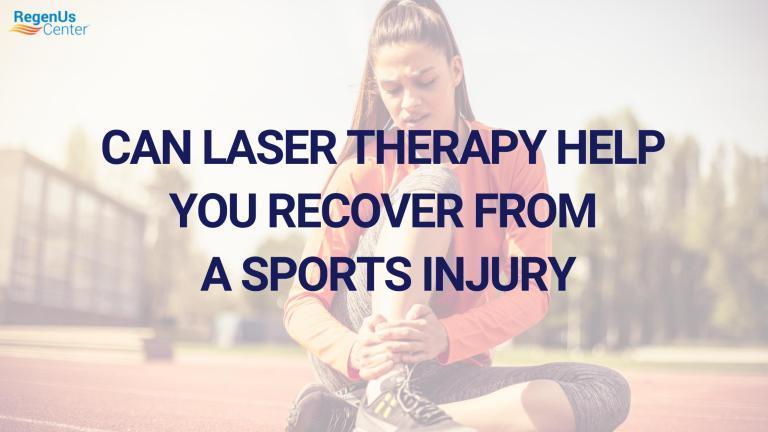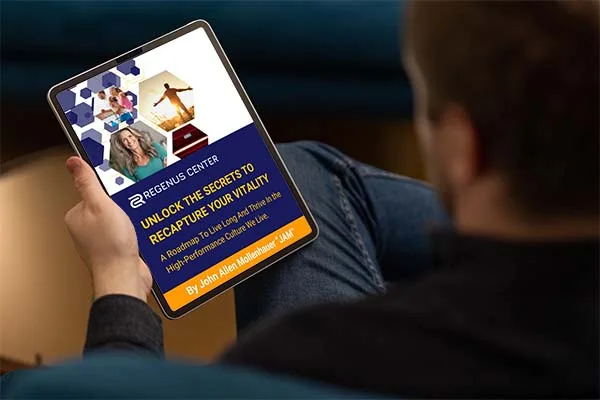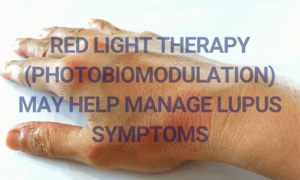Sports are a fun way to stay active while spending time with your friends or family, but activity always poses a risk for injury—especially if you’re doing intense workouts or have been previously injured. While the long-term health benefits of playing sports and working out are far greater than the risk for injury, injuries still happen, and they can take us out of our favorite activities for a while to heal.
If you’ve experienced a sports or workout-related injury, then laser therapy can help you recover from injury and heal soft tissue injury faster.
While there’s some pretty intense sports injuries, these are a few of the common ones, especially for recreational athletes, and how laser therapy can help treat them.
Subacromial Impingement Syndrome
This condition affects the rotator cuff, or the group of tendons that connect muscles to bones in the shoulder joint. Inflammation and tearing of these tendons can result in pain and loss of mobility in the affected joint. This type of injury is common in swimmers and baseball players, primarily pitchers, and is often the result of overuse. In fact, you may have heard of “swimmer’s shoulder,” which refers to a rotator cuff injury.
This 2014 study found that laser therapy was an effective treatment for the pain caused by swimmer’s shoulder. The study compared laser therapy treatment to corticosteroid injections, another common pain relief method. While both were effective at treating the pain, laser therapy is a painless experience where the handpiece is held over the body to administer the treatment—no needles involved.
Plantar fasciitis
This injury is common in runners and walkers and affects the thick band of connective tissue that attaches the heel to the toes. Pain and inflammation are experienced in the bottom of the foot, making standing and walking difficult. This study, conducted on patients with chronic plantar fasciitis, included a treatment plan as well as 12 months of follow-up. They found that pain relief held for the 12-month period and remained well below pain levels reported prior to treatment.
Tendonitis
“Tendonitis” is a broad term used to describe inflammation of connective tissue between muscle and bone, and is caused by overuse. Tendonitis is much different from arthritis, but the trouble spots are identical, such as the knees, hips, back, shoulders, wrists, and hands. Lots of types of tendonitis have a common name bearing the name of the sport or activity they often occur in, such as tennis elbow, golfer’s elbow, and jumper’s knee. In fact, with the rise of esports and more communities built around online gaming, De Quervain’s tenosynovitis plagues esports players. De Quervain’s tenosynovitis is a type of tendonitis that affects the tendons around the wrist and thumb, which makes playing online games with a keyboard or controller difficult. Because of its prevalence among the video gaming community, you may hear De Quervain’s tenosynovitis called “trigger finger.”
One benefit of laser therapy is the ability to treat just about every part of the body. Large areas can be treated with a wider handpiece, and a tighter, more focused light beam can be used for smaller areas, like the hands and wrists. Additionally, adjustable power outputs allow healthcare providers to customize treatment for each patient to achieve the right depth of light penetration and energy delivered for any injury.
With inflammation and discomfort caused by tendonitis, getting treatment and support early are key to avoiding further injury. Laser therapy combined with physical therapy and braces or inserts for support can help heal an injury before significant damage is done.
However, if you’ve let an injury progress too far or a sudden event causes a tendon to snap, surgery will be the only option to repair the damage. Recovery from a major surgery can take a lot of time, especially since you’ll need to be extra careful for awhile. Laser therapy helps with pain and inflammation following surgery, as well as accelerating wound healing and limiting the formation of scar tissue.
Laser Therapy Treatment Plans
Laser therapy is a dose-dependent treatment, meaning the injury needs to be treated with the right amount of light energy over a period of time for multiple weeks and sometimes months (but very rare). If you’re thinking about starting laser therapy to help with a sports-related injury, there are a few things you’ll want to know:
Laser therapy sessions generally take between 3 and 20 minutes, depending on the affected area and corresponding dosage. For best results, it’s important to have regular sessions for the duration of the treatment. Generally, there are 6 to 12 sessions for acute pain in a treatment plan, and sessions are usually three or four times a week.

Laser therapy treatments are generally painless. However, patients who’ve received laser therapy treatment over a tattooed area have reported sensitivity to the laser. Additionally, the laser can affect the color and clarity of the tattoo.
You can resume regular activity after and between laser therapy treatments.
General Disclaimer: These services are not intended to diagnose, treat, cure or prevent any disease. This Website offers health and fitness advice. This advice is designed for educational purposes only and is not intended to replace the advice, treatment, or diagnosis of a healthcare professional. Always consult your physician before beginning any therapy program. You agree that you assume all responsibility when choosing to act on any of the health or fitness advice contained on this Website. We reserve the right to amend this policy at any time without any prior notice to you.





